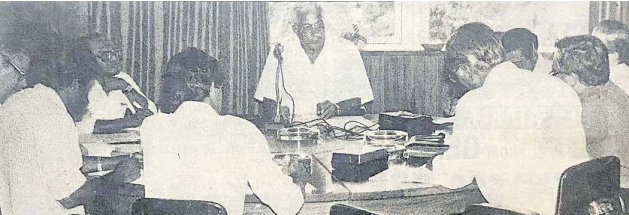ON January 9, 1985, The Fiji Times reported that Government had made contingency plans to counter a strike by Fiji Trades Union Congress (FTUC).
Prime Minister Ratu Sir Kamisese Mara said the government was prepared to declare a state of national emergency if the strike threatened the welfare of the country.
The FTUC had threatened to go on strike the following month.
“Mass dismissals of government employees is another option, if it is within the law,” Ratu Mara said.
If the law permitted, the government would also be prepared to de-register trade unions.
He said the government was prepared to talk with the unions if they decided to withdraw their threat to strike as it was not prepared to negotiate under duress.
The government’s offer to the unions to remove anomalies caused by the wage freeze, if the freeze regulations allowed, still stood, if the strike threat was withdrawn.
“Unions, government and employers would then meet at an ‘economic summit’ conference on January 23 and 24 to discuss the unions’ other grievances,” he said.
The summit was set to also discuss ways of creating more jobs, after discussions on the Fiji Employment Mission report that was released the previous year.
He said that was the agreement made before his official visit to the United States.
However, the trade unions opted out and would not attend the summit.
“If the strike begins on February 12, we have routine measures and precautions taken on essential services.
“We will see what resources we have left in the public service to carry out essential services and we depend on those who have the interests of the nation at heart to help us.”
Ratu Mara said if the circumstances dictated it, the government was prepared to declare a state of emergency.
“We will require the help of the disciplined services.
“Electricity and water supply, communications, fuel supplies and airports would be kept running as a matter of priority.”
Ratu Mara said he would like the Tripartite Forum to continue although the unions had pulled out of it.

